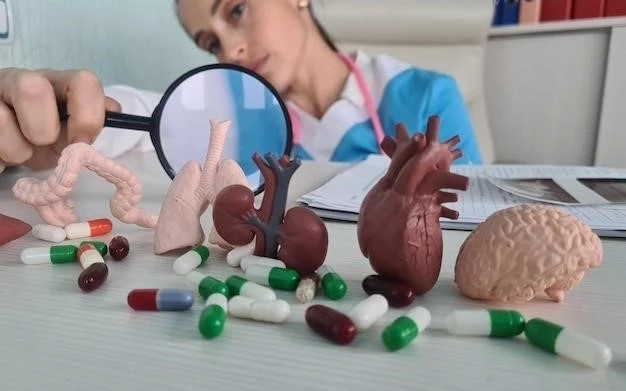Understanding Aortic Arch Interruption
Causes of Aortic Arch Interruption
Aortic arch interruption can be caused by genetic factors, such as certain chromosomal abnormalities․ It may also result from abnormal development of the heart and blood vessels in the fetus․ Maternal conditions like diabetes or drug use during pregnancy can contribute to this condition․ In some cases, environmental factors or exposure to toxins can play a role in the interruption of the aortic arch․
Other potential causes include infections during pregnancy, certain medications, or radiation exposure․ Understanding the underlying causes of aortic arch interruption is crucial for early detection and effective management of this condition․
Symptoms and Signs of Aortic Arch Interruption
Symptoms of aortic arch interruption can vary depending on the severity and location of the interruption․ Common signs include breathing difficulties, cyanosis (bluish discoloration of the skin), poor feeding, and failure to thrive․ Infants with this condition may exhibit signs of heart failure, such as rapid breathing, lethargy, and poor weight gain․
Other symptoms can include abnormal heart sounds, such as murmurs, and high blood pressure in the arms but low blood pressure in the legs․ If left untreated, aortic arch interruption can lead to serious complications, so early recognition of these signs is crucial for prompt medical intervention and management․

Diagnosis of Aortic Arch Interruption
Diagnosing aortic arch interruption typically involves a combination of imaging tests and clinical evaluation․ Imaging studies like echocardiography, CT scans, or MRI scans can help visualize the anatomy of the heart and blood vessels, revealing any abnormalities in the aortic arch․
Additionally, diagnostic procedures such as cardiac catheterization may be utilized to obtain more detailed information about the condition․ Physical exams, listening to the heart sounds, and assessing signs and symptoms are essential components of the diagnostic process․
A thorough evaluation by a pediatric cardiologist or a heart specialist is crucial for accurate diagnosis and appropriate management of aortic arch interruption in both infants and older patients․
Treatment Options for Aortic Arch Interruption
The treatment of aortic arch interruption depends on the severity of the condition and the presence of any associated complications․ In some cases, surgical intervention, such as aortic arch repair or reconstruction, may be necessary to restore blood flow through the affected artery․
Medications to manage symptoms, control blood pressure, or prevent heart failure may also be prescribed․ Close monitoring by a healthcare team, including pediatric cardiologists and cardiac surgeons, is essential to ensure the best possible outcomes․
Individualized treatment plans will be developed based on the patient’s specific situation, overall health, and any other underlying cardiovascular issues․ Early intervention and coordinated care are key to effectively managing aortic arch interruption and improving long-term prognosis․
Complications of Aortic Arch Interruption
Aortic arch interruption can lead to various complications, including heart failure, arrhythmias, high blood pressure, and developmental delays․ Without timely intervention, complications can impact the overall health and quality of life of affected individuals․
Other potential complications may arise from associated heart defects or issues with blood flow to vital organs․ Long-term effects can include cognitive impairments, neurological problems, and challenges related to physical development․
Comprehensive monitoring and management of complications by a multidisciplinary healthcare team are essential to address the specific needs of patients with aortic arch interruption and reduce the risk of adverse outcomes․
